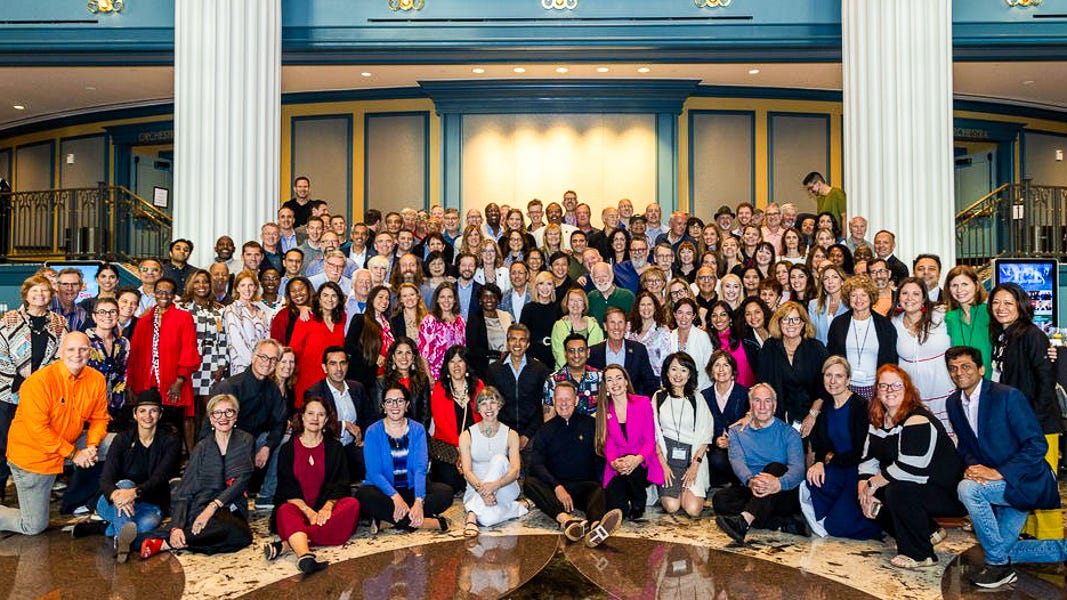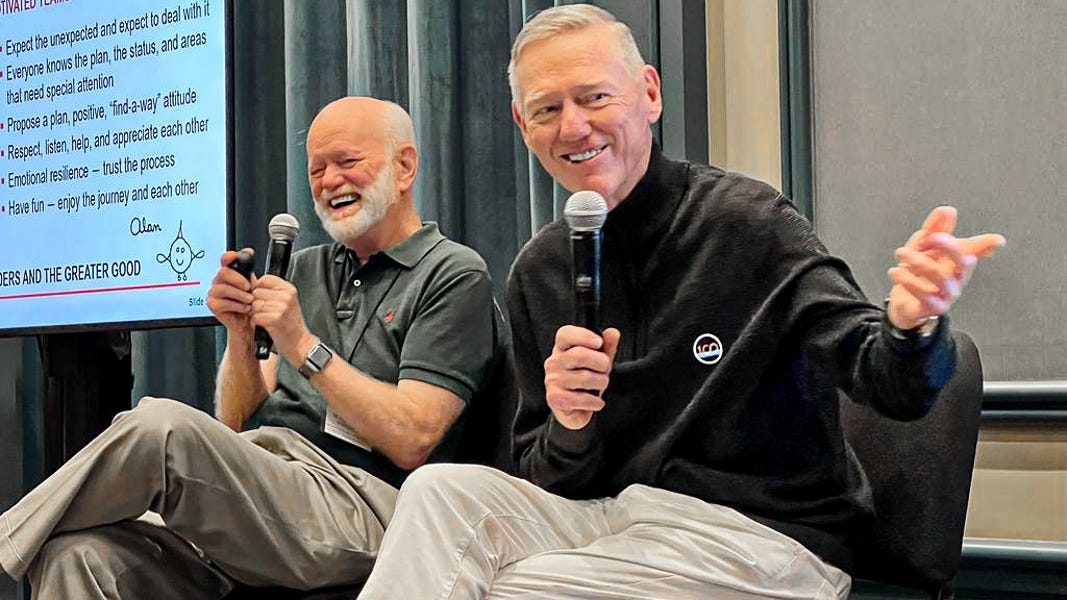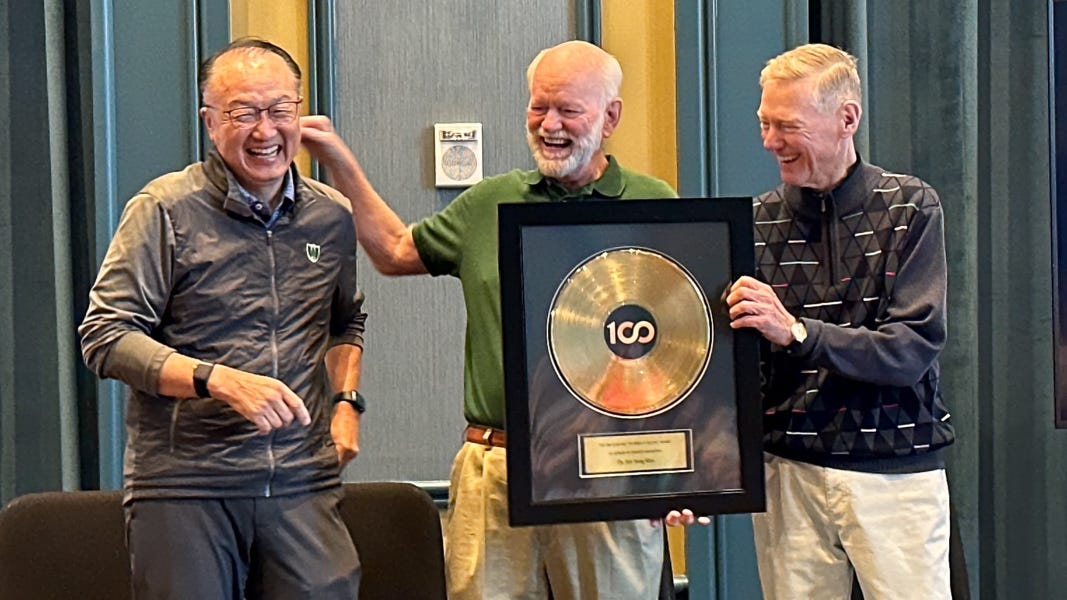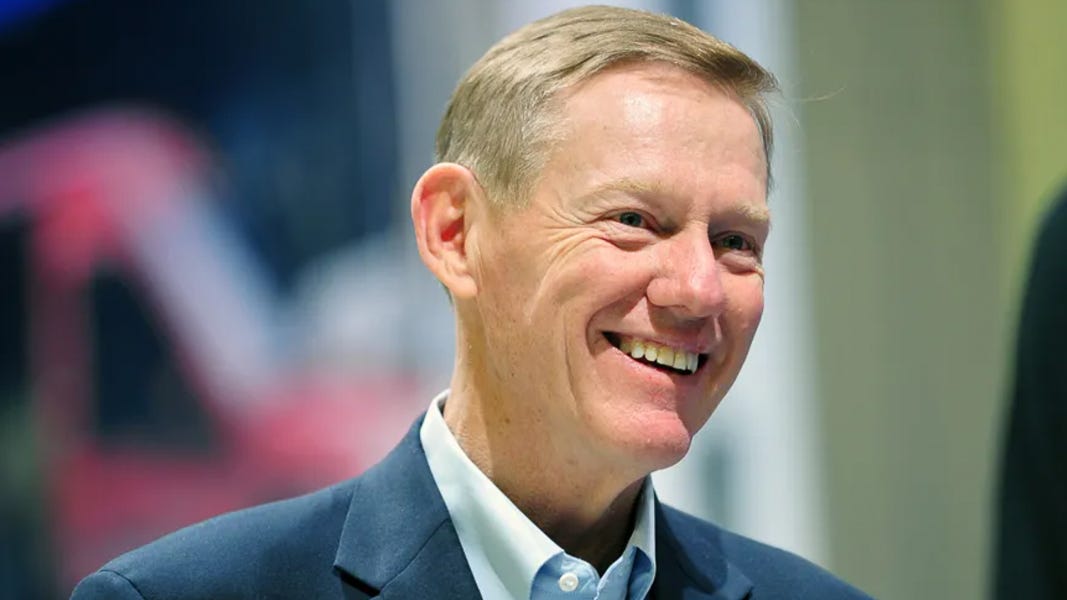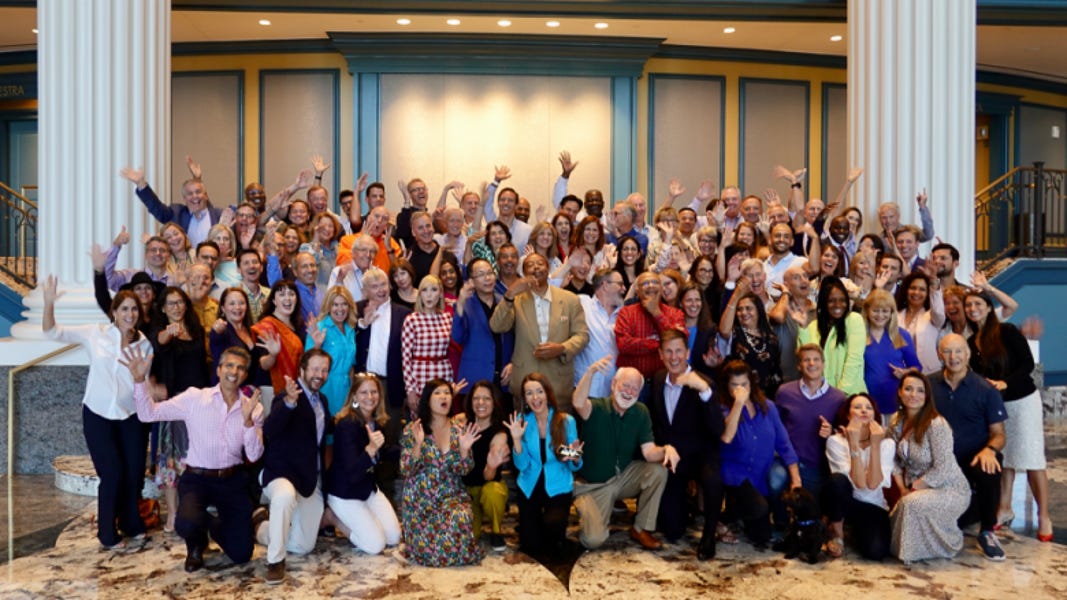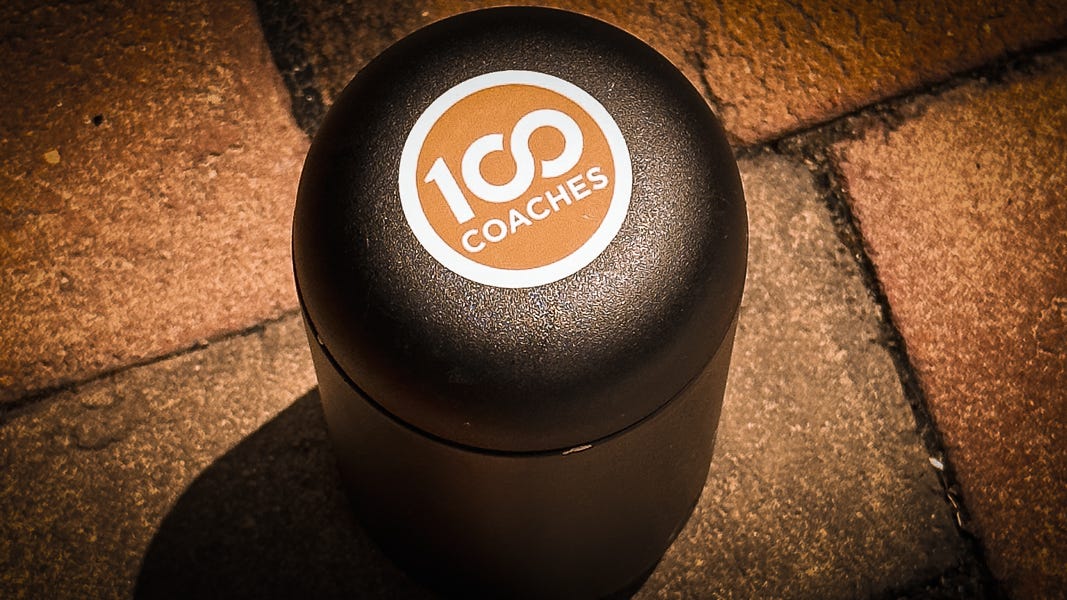Week 23.27 Report From Nashville
In Nashville, this past weekend was the annual meeting of the 100 Coaches.It is hard to overstate how amazing it was to experience the growth and expansion of the community, the commitment and dedication of the individuals involved, and the optimism that I took away as a result. From a humble beginning seven years ago (Marshall called me and asked to help him teach 15 people everything he knows about coaching), today, 100 Coaches is a community of 350 people committed to improving the world through better leadership. We have met at least once annually since 2016, always in person except for 2021, but this year was different. The pandemic years in isolation, combined with the recognition of the work that will require everyone to work together to succeed, brought out the best in everyone. This small group of thoughtfully committed people demonstrated a deeper spirit of collaboration, connection, and generosity than I have ever experienced (and there was a lot there before). Here are some of the highlights.
We were privileged to hear Alan Mulally, former CEO of Ford and one of the greatest leaders of all time teach his world-famous ‘Working Together’ framework. I have seen him present this methodology a few times, and each time I learn something new about the transformative power of open communication, trusted collaboration, and common goals. The core message is by working together with others, you can make the most positive contribution to the most people. As he described the system, I was reminded of how difficult simplicity can be, and how powerful and efficient aligned individuals can be. This year, Alan brought new insights which are also startling in power and simplicity: the same system that turned around the Ford Motor Company can be used to align and empower communities, teams, families, and each of us as individuals. He shared a unified system that brought together his lifetime of work and thinking. Alan’s work is the continuation of the leadership of the great Frances Hesselbein and is a unified theory of life wherein meaningful work becomes one’s life’s work. It was beautiful in its simplicity and breathtaking in its scope.
Dr. Jim Kim spoke authoritatively about how mental health is the challenge of our time. I have been a long-time admirer of Dr. Kim, following his life’s work as he co-founded Partners In Health during which time he challenged and changed the perception of what is possible in global health finding low-cost ways to fight multidrug-resistant tuberculosis in Latin America to supplying HIV/AIDS drugs in Africa to stave off a pandemic (to learn more read Mountains Beyond Mountains or watch the film Bending The Arc). I admired him during a brief term as Dartmouth president, which he left to run the World Bank. During his tenure at the World Bank he led efforts that lifted over 700 million people out of poverty. Now, Dr. Jim has turned his attention to mental health, which he likened to some of the other epidemics that he observed; little information or data existed and cures seemed unlikely to all but a few optimists. He appealed to our community to destigmatize mental health and urged us to collaborate with one another to find solutions, stating that coaching is a particularly well-placed field to make an impact. The data he presented were jarring, and his appeal was compelling. Most exciting was that this world champion in overcoming health obstacles was inviting us to join him in battle.
The weekend was, as always, overflowing with talent and wisdom. At the core of everything we did, on the lips of each attendee, was the experience of the power of relationships to create human flourishing - the experience of people living their fullest lives. Some members of the community have been meeting from the beginning, others were there for the first time. The community was born out of Marshall’s generosity with no other obligation than to pay it forward, and so everyone brings an infectious spirit of generosity. This, combined with the trust of being in a close-knit community, creates new relationships and combinations that produce new ideas that change the way we engage as coaches, leaders, and people. Rather than striving to create transactions, each person was open to sharing their abundance and helping others.
This weekend was also the first time we saw the printed copies of our new book, Becoming Coachable, a guide to unleashing the power of executive coaching to transform life and leadership. It is a powerful articulation of our work and collective wisdom, and it was heartwarming to see our efforts embraced by the community. It is a declaration of our commitment to supporting the work of each member, as well as a guide to help more leaders form their path to flourishing. In life and leadership, this is the only way forward to support those we love and lead. It requires us to consider all employees and customers, shareholders and suppliers, the planet, and ourselves. As Alan said, we have one life, and it is our life’s work. This is my report from Nashville.
HUMILITY, LOVE, AND SERVICE LEADERSHIP by Harry Kraemer, Jr.
I had the opportunity this weekend to participate in the Coaches 100 annual meeting in Nashville, TN. Coaches 100 was founded by Marshall Goldsmith with the goal of “bringing together the world’s premier leadership thinkers and providing them with the opportunity to learn from his practiced and proven methods, plus share ideas and inspiration with one another.” Alan Mulally, the retired CEO of Ford Motor Company and Boeing Commercial Airlines, is an excellent example of what I believe is a true values-based leader, and a special friend. During one of my leadership talks to the Coaches 100 members several years ago, he drew a wonderful diagram that covered all four leadership principles on one page! In his talk at this year’s Coaches 100, Alan discussed his “working together” leadership formation, development, and service journey. I asked him if I could share his work with my Kellogg students and all of you. Alan quickly responded, “Harry, of course!!!”….so click here to see them!
Dealing with Disappointment by Bruce Kasanoff
There are times when your heart is set on doing something, but the Universe has other plans for you. For me, this weekend is one of those gut-wrenching events. For the last year, I've been looking forward to returning to Nashville to be with other members of Marshall Goldsmith's 100 Coaches organization. They are the closest thing to "my tribe" I've ever had in this life. Wednesday evening, as I was packing for a 5:20 a.m. flight the next morning, my already-injured back screamed, "STOP RIGHT THERE!" Suddenly—and without warning—there was this total eclipse of my plans.* My back snapped; that's how it felt. I could barely walk. I took 4 Advil and a muscle relaxer. It made no difference. Weekend plans: RIP. Fortunately, so many of my 100 Coaches and friends had already taught me the skills necessary to deal with such an event. You can read about them here
How pandemic lockdowns changed workplace friendships by Lola Brown, PhD and Ruth Gotian, Ed.D., M.S.
There are signs that much of the world is getting lonelier. In 2018, the United Kingdom appointed the world’s first government minister for loneliness. Last month, the US surgeon general released an alarming report shedding light on the loneliness crisis and its effects on people’s physical and mental health. Loneliness has become a public-health emergency. One of the main solutions is to create a culture of connection. People who have friends at work perform better, are more engaged and have less burnout — which leads to higher productivity and innovation. But how do we forge these friendships in the new work environment that many of us are now in? The pandemic has changed workplace dynamics. The casual, informal gatherings and hallway conversations, which previously solidified our friendships at work, have either disappeared or happen much less often. Everything is now less spontaneous: people often need to schedule virtual meetings just to talk to someone at work. As many of us return to the laboratory or office, we should all revisit how to make friends at work in the ‘new normal’, so that all of us can be more productive and happier, and refill our well-being reservoirs.
With love, wonder, and gratitude. Scott




